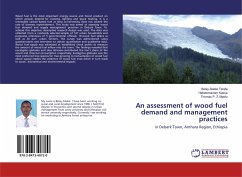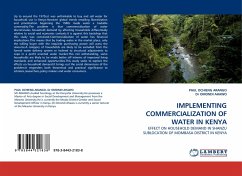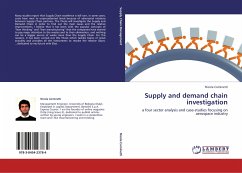
An assessment of wood fuel demand and management practices
in Debark Town, Amhara Region, Ethiopia
Versandkostenfrei!
Versandfertig in 6-10 Tagen
24,99 €
inkl. MwSt.

PAYBACK Punkte
12 °P sammeln!
Wood fuel is the most important energy source and forest product on which people depend for cooking, lighting and space heating. It is a renewable carbon-based fuel as long as harvesting does not exceed the rate of biomass replenishment. This study was aimed at assessing wood fuel demand and supply management practices in Debark Town. To achieve this objective, descriptive research design was used. The data was collected from a randomly selected sample of 167 urban households and purposive interviews of 5 governmental officials, 10 wood fuel sellers as well as 30 peri- urban farmers. The surve...
Wood fuel is the most important energy source and forest product on which people depend for cooking, lighting and space heating. It is a renewable carbon-based fuel as long as harvesting does not exceed the rate of biomass replenishment. This study was aimed at assessing wood fuel demand and supply management practices in Debark Town. To achieve this objective, descriptive research design was used. The data was collected from a randomly selected sample of 167 urban households and purposive interviews of 5 governmental officials, 10 wood fuel sellers as well as 30 peri- urban farmers. The survey was administered using questionnaires and interviews to obtain quantitative and qualitative data. Wood fuel supply was estimated at established check points to measure the amount of wood fuel inflow into the town. The findings revealed that eucalyptus globules and olea africana contributed the lion's share of fire wood and charcoal consumption respectively. Eucalyptus globules was the mostpreferred tree species for tree growing to Consumption of wood fuel above supply implies the existence of wood fuel crisis which in turn leads to social , economical and environmental impacts.












